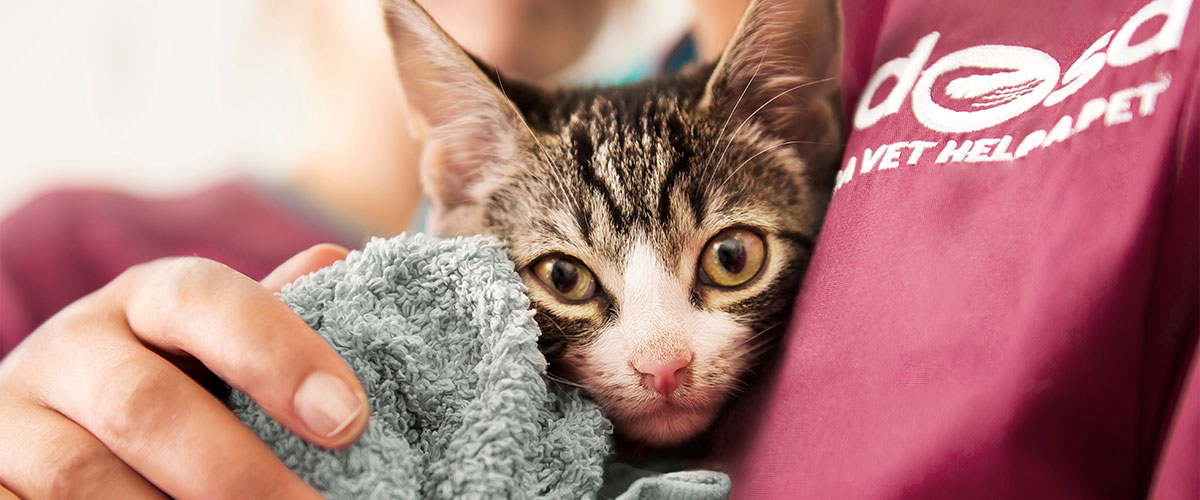Cat parasites
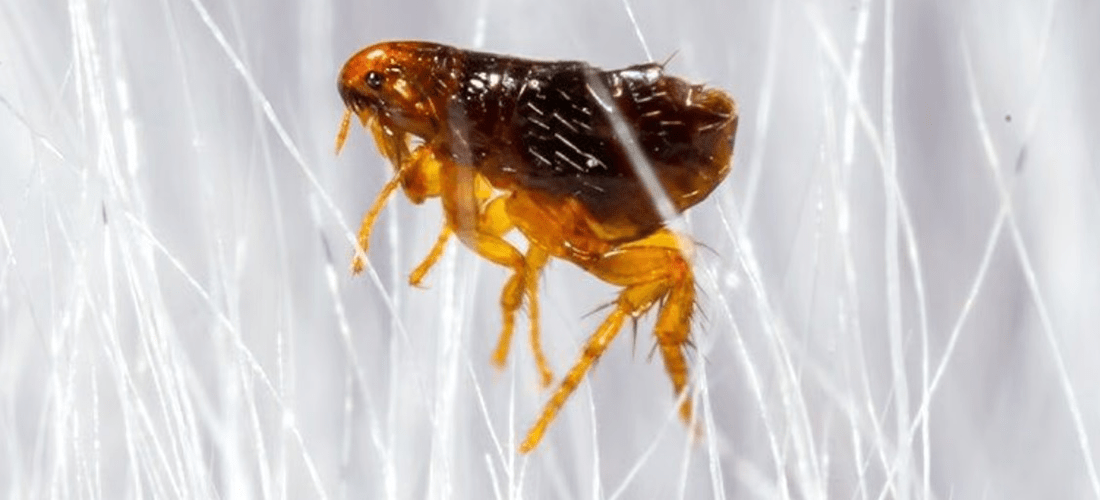
Fleas are very common, and most cats will get them once or twice in their lifetime. Left untreated fleas can cause uncomfortable and painful skin problems. In kittens, a severe flea infestation can even cause anaemia (low numbers of red blood cells) and death.
Ticks
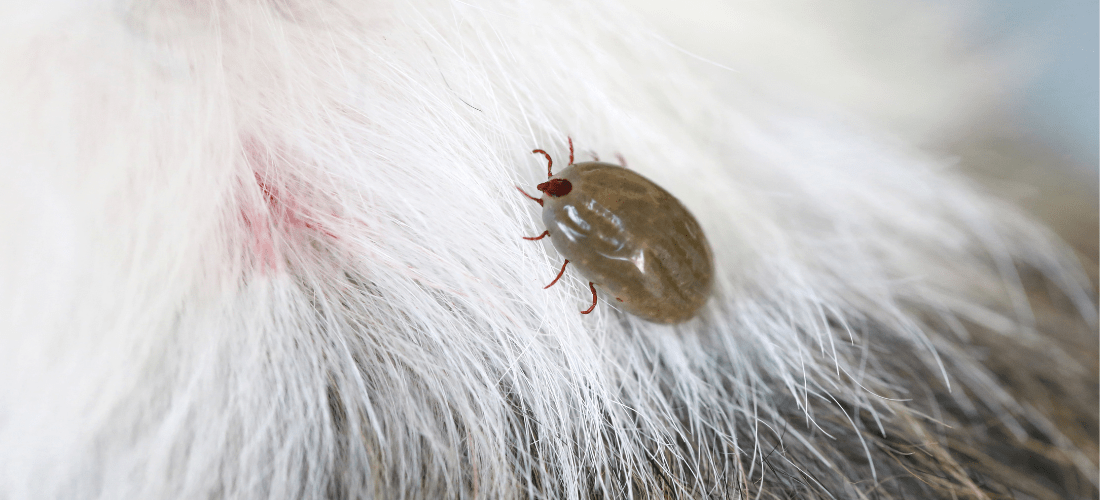
Ticks are small, round parasites which are usually black, pink, purple or grey. They are often mistaken for skin tags and lumps. They attach onto the skin and suck blood. Ticks need to be removed very carefully, otherwise their head can get left behind which can cause infection.
Ear mites
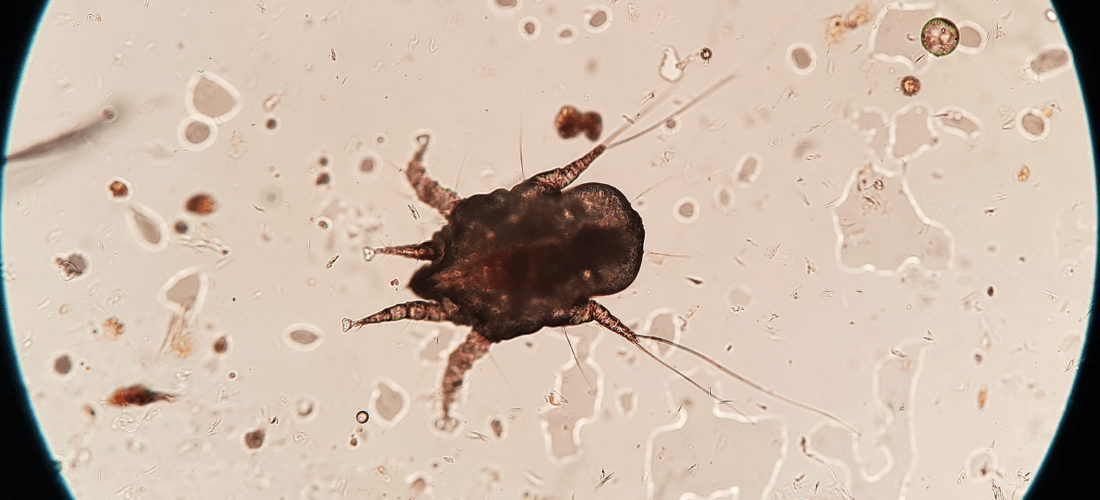
Ear mites cause intensely itchy ears, and often result in an ear infection. You might notice your cat head shaking or rubbing their face or head against furniture. Ear mites can affect cats of any age but are most common in kittens.
Worms
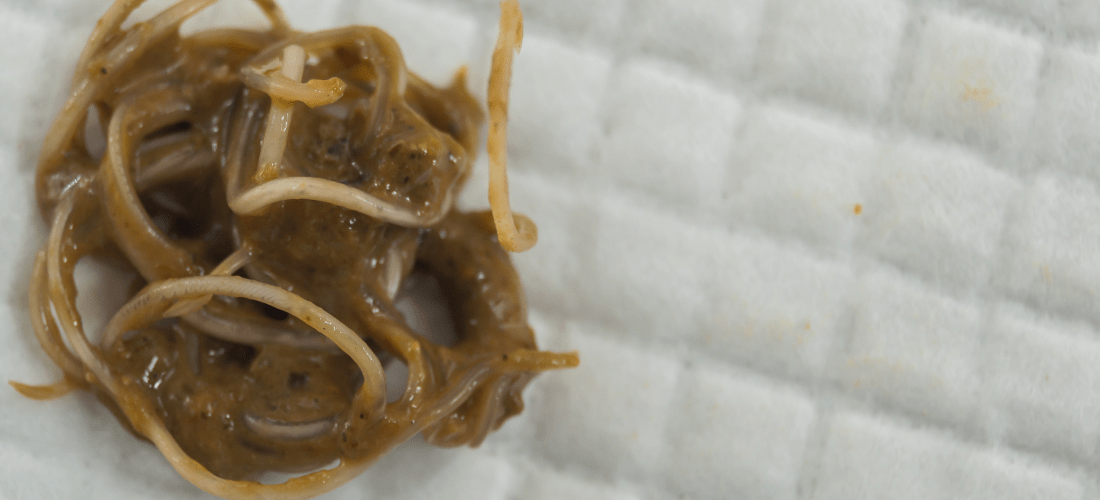
Worms are a common cat parasite, that don’t usually cause serious illness in adult cats, but can cause severe illness in kittens. There are two main types of worm that affect cats - roundworm and tapeworm.
Protozoa
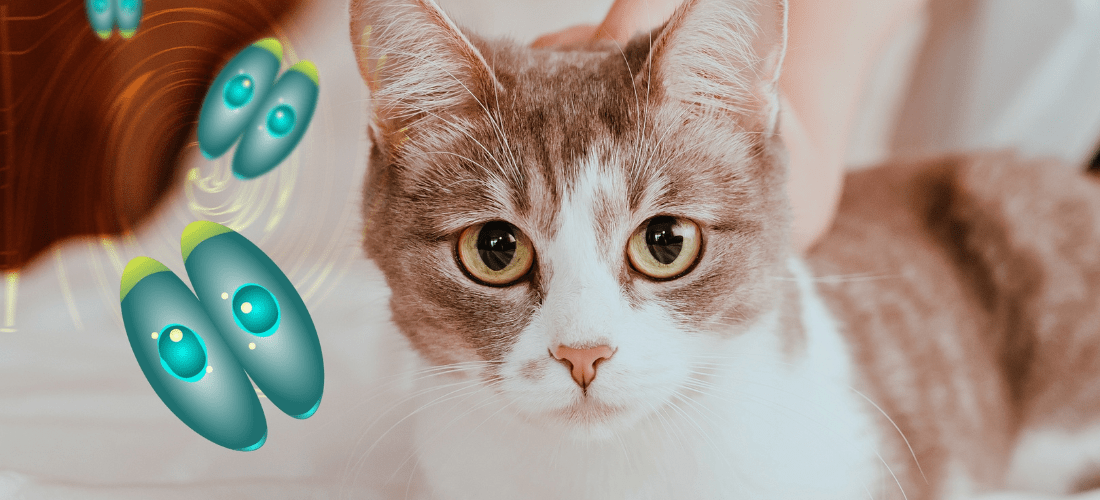
Protozoa are tiny parasites that can only be seen through a microscope. Most of the time they don’t cause illness in cats, but occasionally cause diarrhoea which can become serious if it’s not treated. Giardia, Toxoplasma, Cryptosporidium, Tritrichomonas and Isospora are the most common protozoal infections in cats living in the UK.
Toxoplasma is a particularly important protozoa to be aware of because it’s zoonotic, which means it can spread from cats to humans and vice versa. Toxoplasmosis (the illness caused by toxoplasma), doesn’t cause illness in most people, but can cause serious problems for immunocompromised people (those with weak immune systems) such as pregnant women, people undergoing chemotherapy, and people with HIV.
Mites and lice
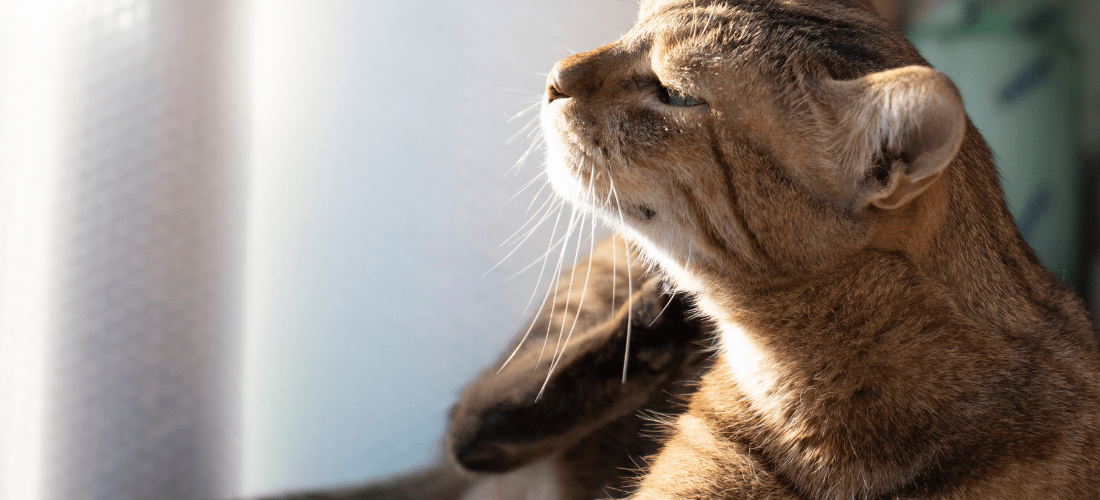
There are a variety of mites and just one species of louse that can affect cats. Fortunately (with the exception of ear mites), mites and lice very rarely affect cats living in the UK.
Preventing cat parasites
Most parasite infestations can be avoided by using regular flea and worming treatments. There a wide variety of flea and worm products available, including spot-on treatments, tablets, and collars. Speak to your vet about the best parasite products for your cat – they will be able to create a tailored plan for your cat’s lifestyle.
Can cats give humans parasites?
Yes, there are certain parasites that we call ‘zoonotic’ which means they can pass from animals to humans and visa-versa. Toxocara cati (a roundworm) is zoonotic, and capable of causing symptoms such as blindness in humans. Toxoplasma gondii (a protozoal parasite) is zoonotic and can cause a disease called toxoplasmosis. This is particularly dangerous for pregnant women because it can cause illness in their unborn child or even miscarriage.
Can cats die from parasites?
It’s unusual for pets to die from parasites, but it is possible in the case of a severe infection, or if the cat is very young, old or otherwise unwell.
Do indoor cats get parasites?
Yes, indoor cats are at a lower risk of getting parasites but it is still possible. Parasites can come into your house on your clothes or shoes. They can also be found on other animals in the house for example fleas can jump from dogs to cats. Speak to your vet to make a tailored plan for your cat based on their individual risk.
Published: January 2024
Did you find this page useful?
Tell us more
Please note, our vets and nurses are unable to respond to questions via this form. If you are concerned about your pet’s health, please contact your vet directly.
Thank you for your feedback
Want to hear more about PDSA and get pet care tips from our vet experts?
Sign up to our e-newsletter
Written by vets and vet nurses. This advice is for UK pets only. Illustrations by Samantha Elmhurst.

